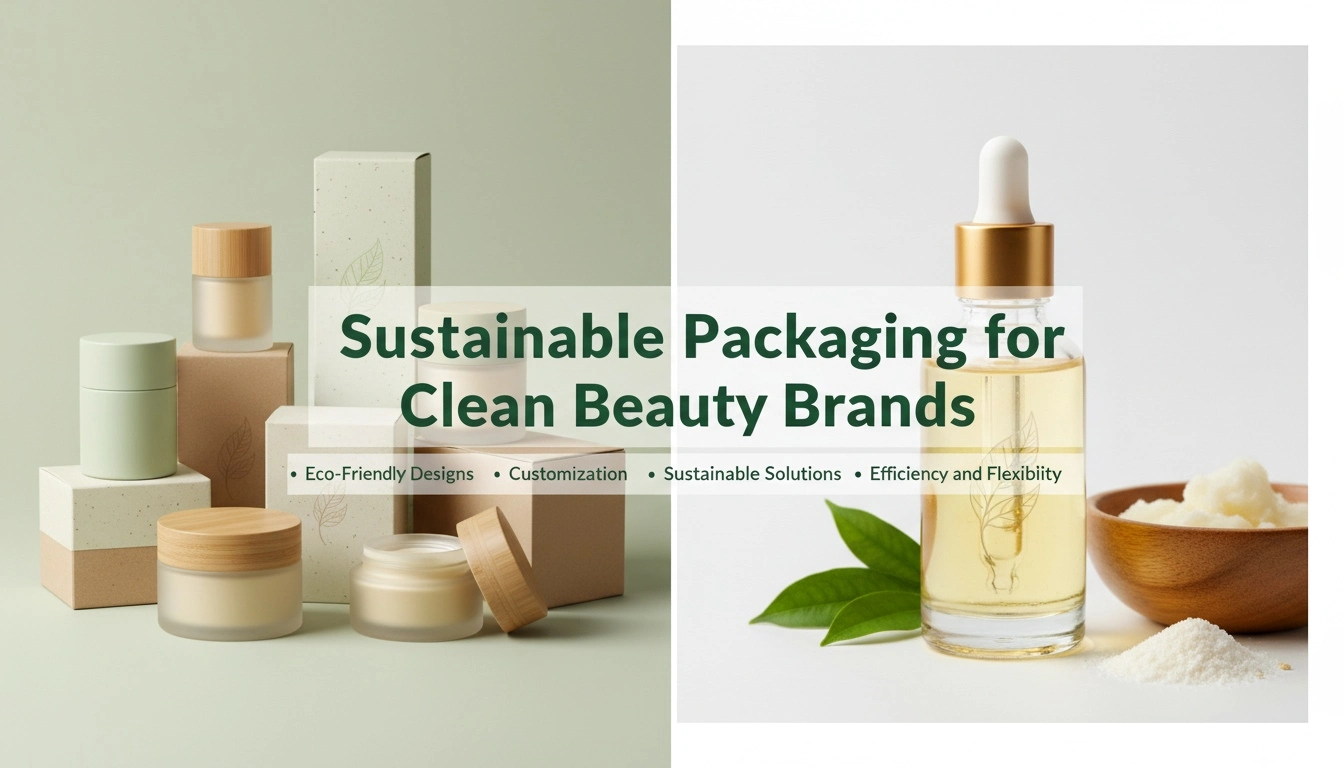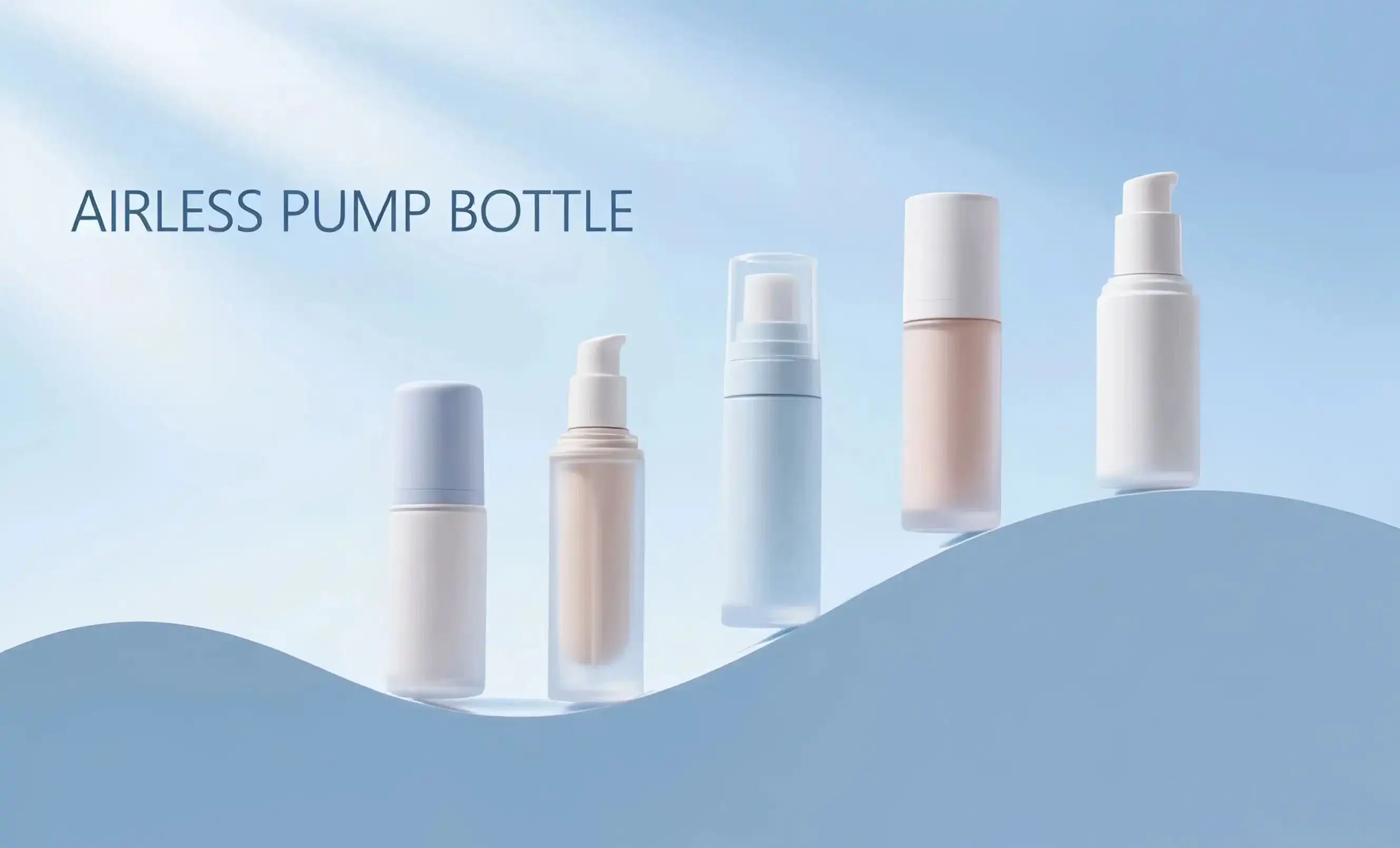Barrier Properties: How Multi-Layer Structures Enhance Product Protection?
Cosmetic packaging is primarily designed to safeguard the goods inside. How many layers an airless tube has is a major factor in how much protection it provides.
Single-Layer Airless Tubes: Basic Protection
As far as protection from the outside world is concerned, single-layer airless tubes will do. Polyethylene or polypropylene is the usual material for these. Although these materials do provide some barrier qualities, they may not be enough for formulations that are very sensitive or for goods that have a lengthy shelf life.
Double-Layer Airless Tubes: Enhanced Stability
Double-layer tubes offer improved barrier properties compared to their single-layer counterparts. The additional layer often consists of a material with enhanced oxygen and moisture barrier properties, such as ethylene vinyl alcohol (EVOH). This structure helps extend the product's shelf life and maintain its efficacy for a longer period.
Topfeelpack's Five-Layer Airless Tubes: Superior Protection
Topfeelpack's five-layer airless tubes are the most effective defense against environmental hazards. Many layers of various materials, each with its own function, make up these tubes. To illustrate:
- Outer layer: Provides structural integrity and printability
- Tie layers: Ensure adhesion between incompatible materials
- Barrier layer: Offers superior oxygen and moisture protection
- Inner layer: Ensures product compatibility and easy dispensing
This complex structure significantly reduces the risk of product degradation, oxidation, and contamination, making it ideal for sensitive formulations and premium skincare products.
Cost vs. Performance: Choosing the Right Layer Structure
While multi-layer structures offer superior protection, they also come with increased costs. Brands must carefully weigh the benefits against the expenses when selecting the appropriate airless tube structure for their products.
Single-Layer Tubes: Cost-Effective Solution
Single-layer tubes are the most economical option, making them suitable for products with shorter shelf lives or less sensitive formulations. They're often chosen by brands looking to minimize packaging costs while still benefiting from the airless dispensing system.
Double-Layer Tubes: Balanced Approach
Double-layer tubes offer a middle ground between cost and performance. They provide enhanced protection at a moderate price increase, making them a popular choice for many mid-range skincare and cosmetic products.
Five-Layer Tubes: Premium Protection
Five-layer tubes represent the pinnacle of airless tube technology, offering the highest level of product protection. While they come at a higher cost, the investment is often justified for high-end, sensitive, or long-lasting formulations. Brands targeting the luxury market or those with particularly delicate products find the additional expense worthwhile for maintaining product integrity and quality.
Manufacturing Challenges: Producing Complex Multi-Layer Airless Tubes
The production of multi-layer airless tubes presents unique challenges that manufacturers must overcome to ensure quality and consistency.
Single-Layer Production: Straightforward Process
Manufacturing single-layer tubes is relatively straightforward, involving standard extrusion and molding processes. This simplicity allows for faster production times and easier quality control.
Double-Layer Complexities
Double-layer tubes require more sophisticated equipment and expertise. Manufacturers must ensure proper adhesion between layers and maintain consistent thickness throughout the tube. This process demands precise control over temperature, pressure, and material flow.
Five-Layer Manufacturing: A Technical Marvel
Producing five-layer airless tubes is a complex process that requires advanced machinery and highly skilled technicians. Challenges include:
- Ensuring uniform thickness across all layers
- Maintaining proper adhesion between different materials
- Preventing delamination during use
- Optimizing the barrier properties of each layer
Companies like Topfeelpack have invested in cutting-edge technology and expertise to overcome these challenges, delivering high-quality, multi-layer airless tubes that meet the exacting standards of the beauty industry.
Quality Control and Testing
Rigorous quality control measures are essential for all airless tube structures, but they become increasingly critical with multi-layer designs. Manufacturers must conduct thorough testing to ensure:
- Proper layer adhesion
- Consistent wall thickness
- Effective barrier properties
- Compatibility with various product formulations
- Proper functionality of the airless dispensing mechanism
These tests help guarantee that the final product meets the performance requirements and regulatory standards of the cosmetic industry.
Conclusion
When choosing between single-layer, double-layer, and five-layer airless cosmetic tubes, you ought to consider how fragile the item is, how long it needs to final, your target gathering of people, and your budget. A multi-layer structure is necessary for the preservation of high-end skincare and cosmetic formulas due to its greater barrier qualities, whereas single-layer tubes are a more economical option for basic protection.
For brands seeking the ultimate in product protection and packaging innovation, Topfeelpack offers state-of-the-art multi-layer airless tubes tailored to your specific needs. Because we care about the environment, can make changes quickly, and offer low prices, we're the perfect partner for beauty brands that want to step up their packing game. We have the skills and tools to make your ideas come to life, whether you're a skilled OEM/ODM plant, a high-end skincare brand, or a trendy makeup line.
Ready to explore how our advanced airless tubes can enhance your product's shelf life and appeal? Contact us today at pack@topfeelgroup.com to discuss your packaging needs and discover the Topfeelpack difference. Let's work together to plan bundling that will keep your merchandise secure, reflect your brand's values, and adjust to the ever-changing magnificence industry.
References
1. Johnson, A. (2022). Advances in Multi-Layer Packaging for Cosmetics. Journal of Cosmetic Science, 73(4), 211-225.
2. Smith, B., & Brown, C. (2021). Barrier Properties of Polymer Layers in Cosmetic Packaging. Packaging Technology and Science, 34(2), 89-103.
3. Lee, D., et al. (2023). Cost-Benefit Analysis of Multi-Layer Airless Tubes in the Beauty Industry. International Journal of Cosmetic Engineering, 15(3), 142-156.
4. Garcia, M. (2022). Manufacturing Challenges in Producing Five-Layer Cosmetic Tubes. Journal of Packaging Innovation, 8(1), 45-59.
5. Wong, R., & Taylor, S. (2021). Quality Control Measures for Multi-Layer Cosmetic Packaging. Cosmetics & Toiletries, 136(5), 32-40.
6. Patel, N. (2023). Sustainability Considerations in Multi-Layer Cosmetic Packaging Design. Green Packaging Technology, 12(2), 78-92.

 - 副本_1745399213966.webp)

_1747827716538.webp)

